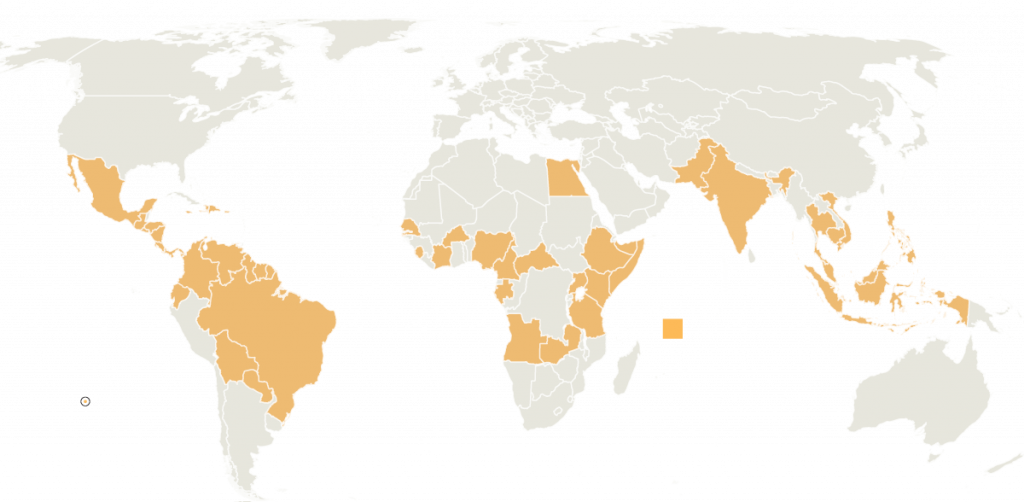The Zika virus, which has caused massive amounts of fear over the last few months, was previously thought to have only been transferred through the bites of specific mosquitoes. But now a new case involving the sexually transferred transmission of the virus has people wondering if the virus should also be classified as a STD.
If you haven’t heard of it, the Zika virus is a disease that has spread through mosquito bites and has been found in various tropical locations across the world, including countries in North America, South America, Africa and Asia. The virus has been around for decades, first found in 1947 in Uganda, and named after the Zika forest where it was discovered. But recently there was a huge outbreak in Brazil that has been spreading around the Western Hemisphere, and now threatens some of the largest populations in the Americas.
The virus has the worst affect on pregnant women, whose babies are born with underdeveloped heads and damaged brains. It’s gotten to the point that health officials are urging pregnant women to avoid traveling to tropical locales, and to the point that even Brazil–a country that is very strict about its pro-life laws–is questioning changing its stance on abortion.
But is the virus actually sexually transmitted?

By The New York Times | Sources: Centers for Disease Control and Prevention; Pan American Health Organization
Yes, but so far only rarely.
As of this writing, there are only three known reports. One was a scientist who had returned to Colorado from Africa and infected his wife; in 2013 a Tahitian man was found with the virus in his semen; and just recently health officials in Texas announced that someone returning to Dallas from Venezuela had infected his partner.
In two of the three cases, the men had both genital pain and blood in their semen, suggesting that their testes or prostates had been infected. It is unsure if the virus is spread through all forms of sex, through semen that has blood present, or through men who have shown signs of Zika symptoms. Either way, both women and men are encouraged to protect themselves with condoms if they have been traveling to tropical regions that have had the Zika virus.
As of this writing, there just isn’t enough research to confirm anything conclusively. For now, it’s still an epidemic, but more for its bug-driven delivery than intimate contact. But it’s better to err on the side of caution then play fast and loose.
For more information, check out the New York Times Zika Guide, which offers an abundance of information using all available credible sources.
